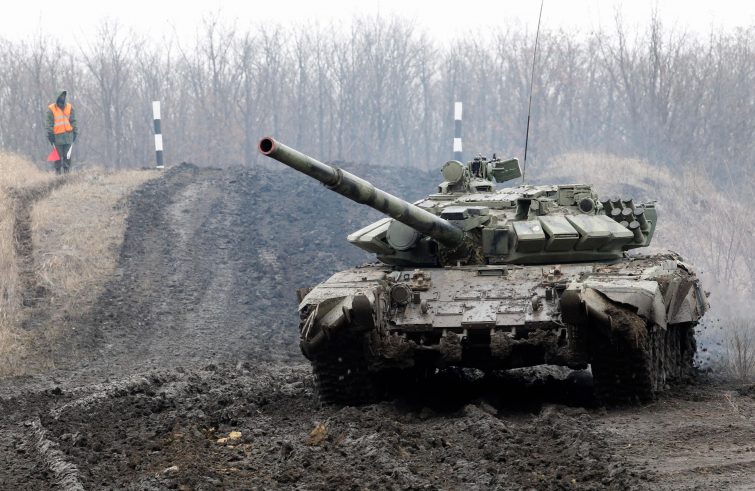
“Sadly, without negotiations, there is a heightened risk of war. Wars break out because those who wage them assume they will win, or because they are deemed worth waging after having assessed damages and gains. For both Russia and the West, there is no such rational condition. But the irrational aspect has its place in history, and Putin’s late-night speech was alarming. I listened to him in Russian and I noticed that the tone of his voice was cold and stiff, as if he were in a state of restrained anger. The fact that he started with the claim that Ukraine is a historical part of Russia, does not foreshadow good news.” Aldo Ferrari, Professor at Ca’ Foscari University in Venice, Director of Research on Russia, Caucasus and Central Asia at ISPI (Italy’s Institute for Political Studies), is following with concern the developments in Ukraine after Vladimir Putin’s late-night televised speech on Monday evening announcing the recognition of the two pro-Russian separatist republics Donetsk and Lugansk in Ukraine’s Donbas region – at the end of a day of frenzied exchanges with Paris and Berlin. “Russia has made requests to the West and none of them have been accepted,” says ISPI’s expert.
“It was to be expected that he would take steps to show both externally and internally – i.e. to his own citizens – that Russia is strong and can yield results. The only question was which move he would make.”
How do you interpret this, Professor?
On the whole, this is the least serious and disruptive move so far. Albeit serious from a juridical point of view, it does not involve any victims, at least for the moment. If it all stopped now – notwithstanding the very critical situation that has been created – it would be the preferable option. There are other worst-case scenarios.
Which ones?
That this may not be the end of the crisis but an intermediate phase that could trigger various reactions -from the West, in terms of sanctions. Conversely, the Russian side might at this point make a further move directed not against Kiev with an invasion into the heart of Ukraine but into a smaller area further east, to connect the secessionist Donbas territories to Crimea. But in that case it would be a full-scale invasion of Ukraine to which Ukraine would respond with full force.
Is it a likely scenario?
From a rational point of view I would say no, since the events in Donbas could be regarded as a rational move. It achieved a modest yet important objective, especially for domestic politics and without casualties. A full-scale invasion would be irrational.
Not that irrational things don’t happen in history, but I think- and hope- that Russia will not take it any further, since not only would it plunge into an international, military and diplomatic conflict with the West, but it would also bring minimal advantage.
Putin made his move. Which scenarios are unfolding on the opposite front?
Ukrainian President Volodymyr Zelensky doesn’t have many options, since Ukraine is too weak to oppose Russia and it has little room for manoeuvre.
But it positioned troops along the Donbas?
If Ukraine were to attack now, with the official presence of Russian troops in the area described as a peacekeeping force, it would be a declaration of war to Moscow, at which point Moscow would respond as the attacked party and not as the aggressor.
So how can the situation be reversed at this point?
There is no going back.
But we must be aware that our recent history has shown that the weapon of sanctions has proved somewhat useless. Sanctions aggravate the situation, they cause some damage to the Russian economy and much damage to the Italian and German economies – and they are politically ineffective. The only way out of this situation is to initiate a new diplomatic phase where a compromise solution is sought on both sides.
How can a compromise solution be reached in this delicate phase?
By avoiding hard-line policy on both sides.
Russia’s foreign policy is traditional, nineteenth-century, brutal, but it has its own logic, it pursues clear geopolitical interests and, at the moment, its primary interest is security. When Russia says that NATO on its borders is a threat to national security, it’s true. Conversely, the West is dangerously combining the rhetoric of democracy with a policy of expansion that prescinds from democracy itself.
At this stage, what is the way out?
The neutralisation of Ukraine to enable the creation of a comprehensive and lasting peace and security structure in Europe. But this solution is not even being taken into consideration, and the scope for dialogue is non-existent.
Is the prospect of war realistic?
Alas, as I said, without negotiations, there is a heightened risk of war. The West must not persist in its total indifference to Russia’s arguments. Russia has its own reasons, which must be listened to and taken into consideration. And negotiations should focus on those claims. However, Russia must also make some concessions.









